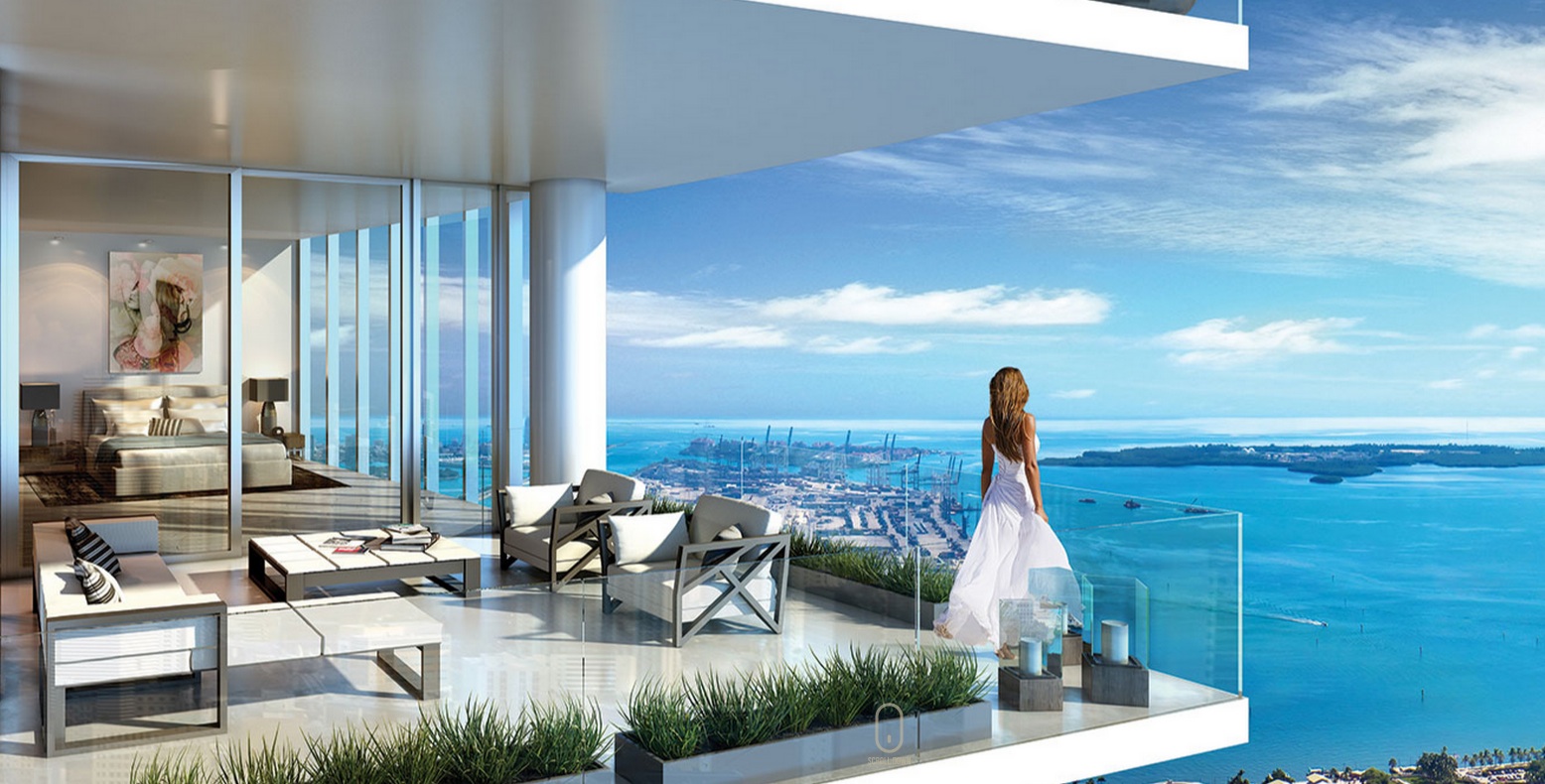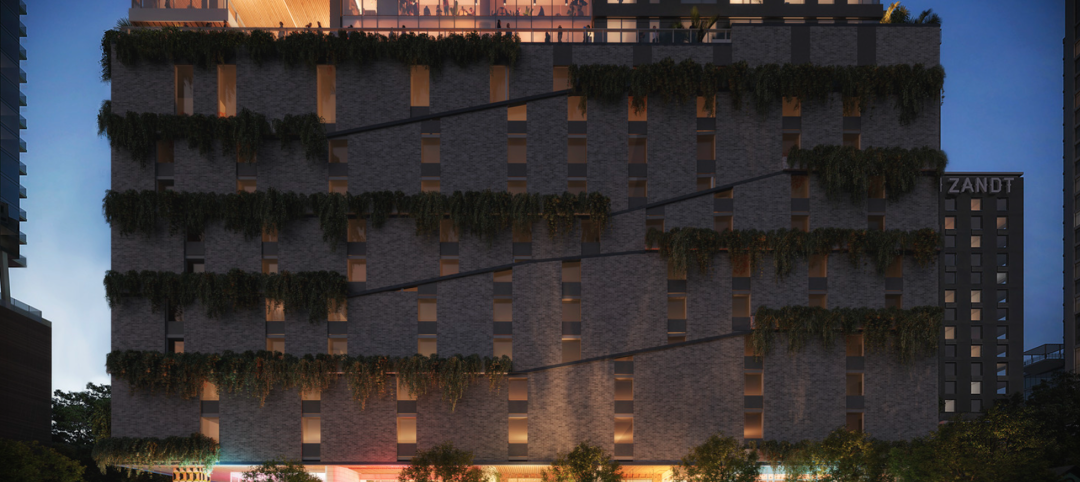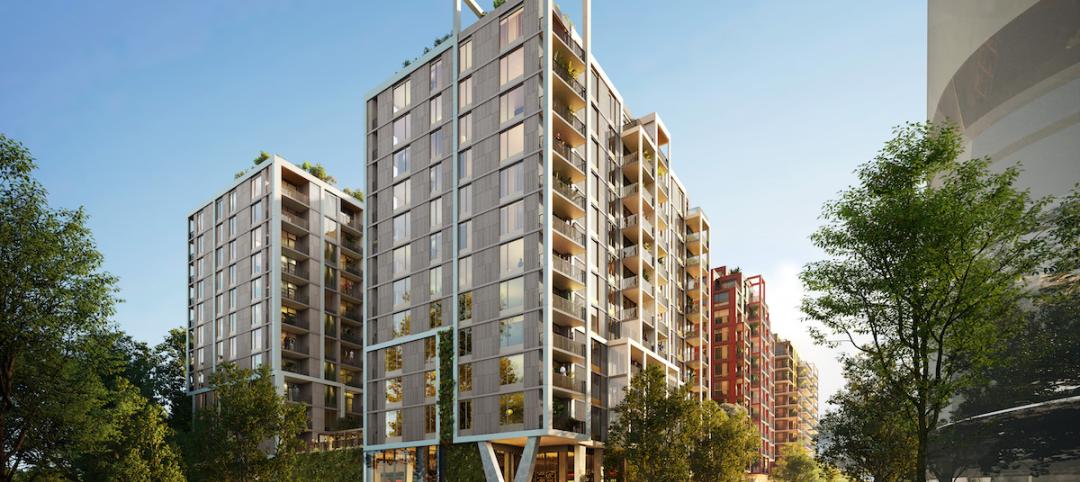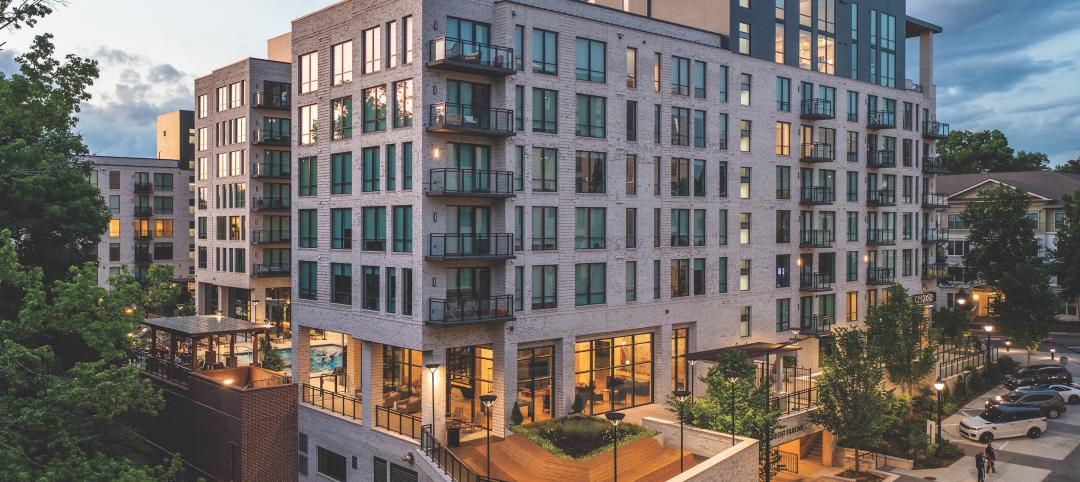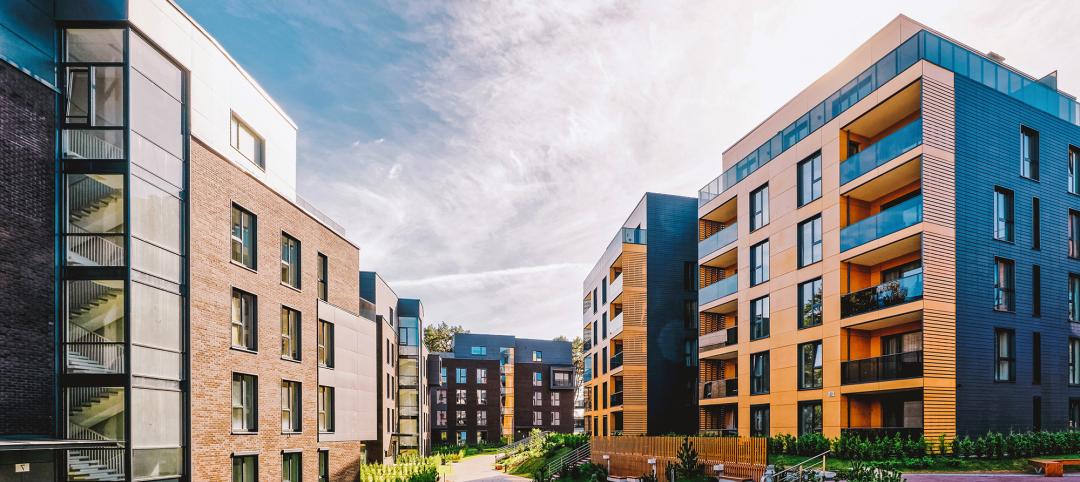Miami’s real estate market has long been a magnet for foreign investors. But developers now report that out-of-town buyers, both foreign and domestic, are seeking homes they can live it, rather than just park money into. The influx of these buyers is having a noticeable impact on how apartments, condos, and townhouses are designed, especially at the luxury end of the market.
The Miami Herald reports on several new multifamily projects whose homes include maid’s rooms, larger terraces, boutique-size closets, and guest suites.
The article points specifically to Paramount Miami Worldcenter, a $1.7 billion mixed-use complex that will blanket 27 acres of Overtown and downtown Miami, as an example of this trend. About 80 of its 513 apartments will include 250- to 280-sf studios with their own bathrooms and bedrooms, which could house a maid, a nanny, or a guest.
Another such project is the 12-apartment Louver House in South Beach, whose 2,400-sf units will include 700-sf terraces that allow residents to enjoy the outdoors more.
In an interview with The Real Deal, Camilo Miguel, CEO of Mast Capital, Louver House’s developer, says that five of the 12 apartments have been sold, at prices averaging about $1,300 per square foot. “We have a mixed group of buyers including a couple of New Yorkers looking to make it a permanent residence. There’s an owner from South America who bought here, an individual from the Apogee. They’re not investors, really. They’re end-users.”
The number of luxury homebuyers in Miami-Dade with New York addresses was up 20% in the first six months of 2015, according to the Herald. Developers are appealing to those buyers and renters who want that semi-urban experience by emphasizing their buildings’ proximity to mass transit. At least one developer, Property Market Groups, is also building smaller, more urban-like units: its 464-unit luxury rental at 300 Biscayne Blvd. called Vice will include studios at 530 sf for about $1,650 per month and one-bedrooms at 600 sf for about $1,800 per month, as well as larger units.
Miami’s attractiveness to out-of-towners continues to be the relative inexpensiveness of its housing, compared to other global cities. Quoting statistics from EWM Realty International, the Herald reports that prices in Miami Beach average $760 per sf, versus $2,204 in New York, $2,948 in London, and $2,331 in Hong Kong. (While Chinese investors account for a minuscule number of residential real estate buyers in Miami, they are seen as a growth market for whom housing units need to be tailored.)
Latin Americans accounted for 68% of all foreign buyers in Miami and Broward counties last year, according to the Miami Association of Realtors. However, number of foreign buyers has been slowing as currency crises rattle economies in Latin America and Europe. Cash sales, which often indicate international buyers, were down 12% in Miami-Dade in June 2015 compared with June 2014.
Related Stories
Multifamily Housing | Apr 20, 2023
A solution for sharing solar energy with multifamily tenants
Allume Energy’s SolShare sees lower-income renters as its primary beneficiaries.
Multifamily Housing | Apr 19, 2023
Austin’s historic Rainey Street welcomes a new neighbor: a 48-story mixed-used residential tower
Austin’s historic Rainey Street is welcoming a new neighbor. The Paseo, a 48-story mixed-used residential tower, will bring 557 apartments and two levels of retail to the popular Austin entertainment district, known for houses that have been converted into bungalow bars and restaurants.
Multifamily Housing | Apr 17, 2023
World's largest multifamily building pursuing ILFI Zero Carbon certification under construction in Washington, D.C.
The Douglass, in Washington, D.C.’s Ward 8, is currently the largest multifamily housing project to pursue Zero Carbon Certification from the International Living Future Institute (ILFI).
Sponsored | Multifamily Housing | Apr 12, 2023
With affordability and innovation for all: Multifamily housing ideas break barriers
With a growing need for multifamily housing solutions at all income levels, the U.S. market is seeing a proliferation of inventive projects. Alongside the creativity is a nascent move toward higher quality, if not always larger unit sizes, with offerings of better amenities both inside and outside today’s latest residential solutions.
Urban Planning | Apr 12, 2023
Watch: Trends in urban design for 2023, with James Corner Field Operations
Isabel Castilla, a Principal Designer with the landscape architecture firm James Corner Field Operations, discusses recent changes in clients' priorities about urban design, with a focus on her firm's recent projects.
Market Data | Apr 11, 2023
Construction crane count reaches all-time high in Q1 2023
Toronto, Seattle, Los Angeles, and Denver top the list of U.S/Canadian cities with the greatest number of fixed cranes on construction sites, according to Rider Levett Bucknall's RLB Crane Index for North America for Q1 2023.
Contractors | Apr 10, 2023
What makes prefabrication work? Factors every construction project should consider
There are many factors requiring careful consideration when determining whether a project is a good fit for prefabrication. JE Dunn’s Brian Burkett breaks down the most important considerations.
Affordable Housing | Apr 7, 2023
Florida’s affordable housing law expected to fuel multifamily residential projects
Florida Gov. Ron DeSantis recently signed into law affordable housing legislation that includes $711 million for housing programs and tax breaks for developers. The new law will supersede local governments’ zoning, density, and height requirements.
Multifamily Housing | Apr 4, 2023
Acing your multifamily housing amenities for the modern renter
Eighty-seven percent of residents consider amenities when signing or renewing a lease. Here are three essential amenity areas to focus on, according to market research and trends.
Resiliency | Apr 4, 2023
New bill would limit housing sprawl in fire- and flood-prone areas of California
A new bill in the California Assembly would limit housing sprawl in fire- and flood-prone areas across the state. For the last several decades, new housing has spread to more remote areas of the Golden State.


